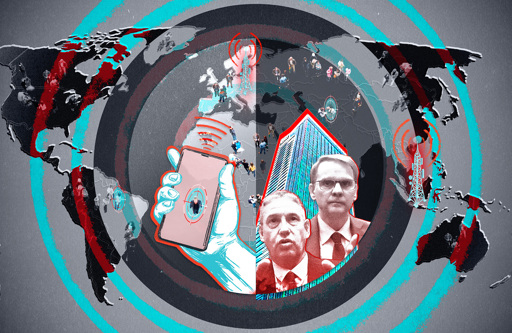Albert and Abdou met First Wap’s sales director Günther Rudolph at the company’s booth, to discuss a series of business propositions. Could First Wap help a government monitor opponents abroad? Could the company crack encrypted WhatsApp chats? Could it help the owner of a mining company disrupt protests by environmental activists? “He knows already who are the leaders, or he wants to find out?” asked Rudolph.
Rudolph drew the undercover reporters’ attention to a potential snag: some of the people they propose selling to might be under sanction from the EU or US, meaning that European nationals like First Wap’s executives risked imprisonment if it were known they organised the sale. “That’s why when we make such a deal we make it through Jakarta,” Rudolph said, referring to First Wap’s corporate base in Indonesia. It was a “grey area”, he said. But “we can find a way”. What this way might look like became clear the following day: using a newly invented shell company to mask the connection in the papertrail between First Wap and the sanctioned client.
On the technology which this spy company uses, and the vast extend of the hidden, antidemocratic and illegal surveillance it enables:
https://www.lighthousereports.com/methodology/surveillance-secrets-explainer/


